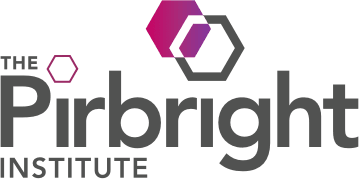African swine fever (ASF) is a global threat to animal health and food security. ASF is typically controlled by strict biosecurity, rapid diagnosis, and culling of affected herds. Much progress has been made in developing modified live virus vaccines against ASF. There is host variation in response to ASF infection in the field and under controlled conditions. To better understand the dynamics underlying this host differential morbidity, whole transcriptome profiling was carried out in twelve immunized and five sham immunized pigs. Seventeen MHC homozygous inbred Large white Babraham pigs were sampled at three time points before and after the challenge. The changes in the transcriptome profiles of infected animals were surveyed over time. In addition, the immunization effect on the host response was studied as well among the contrasts of all protection subgroups. The results showed two promising candidate genes to distinguish between recovered and non-recovered pigs after infection with a virulent African swine fever virus (ASFV) pre-infection: HTRA3 and GFPT2 (padj < 0.05). Variant calling on the transcriptome assemblies showed a two-base pair insertion into the ACOX3 gene closely located to HTRA3 that may regulate its expression as a putative genomic variant for ASF. Several significant DGEs, enriched gene ontology (GO) terms, and KEGG pathways at 1 day and 7 days post-infection, compared to the pre-infection, indicate a significant inflammation response immediately after ASF infection. The presence of the virus was confirmed by the mapping of RNA-Seq reads on two whole viral genome sequences. This was concordant with a higher virus load in the non-recovered animals 7 days post-infection. There was no transcriptome signature on the immunization at pre-infection and 1 day post-infection. More samples and data from additional clinical trials may support these findings.
